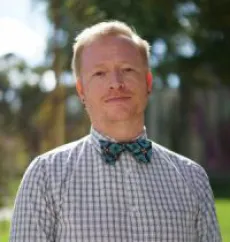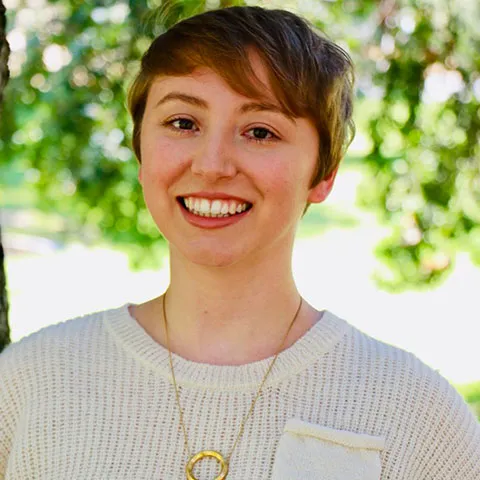Interested? Contact us today!
If you have interest in one of our degree programs or would like more information, please contact us.
Minor in Addiction Science
The minor will focus on the scientific study of the nature, causes, consequences, prevention, intervention, and treatment of the broad spectrum of addiction-related problems. Students will also acquire an understanding of how addiction science can bridge the gap between science, practice, and policy, to educate and be educated by those impacted by all addictive behaviors, including both substance and non-substance addiction. The courses in this minor take a real-world approach, recognizing that addictive behaviors exist within a complex environment involving commercial-economic, political, cultural, and social forces.
Why a Minor in Addiction Science?
Our Goal is to bring empathetic, data-driven knowledge of addiction as a valuable skill into any career path.
Our minor is designed to provide students with a transdisciplinary approach toward understanding and advancing the growing field of Addiction Science. Students are able to gain insight into Addiction Science through courses, faculty, and research opportunities via a collaborative education that involves the Keck School of Medicine, the USC School of Pharmacy, the USC Suzanne Dworak-Peck School of Social Work, and the USC Dornsife College of Letters, Arts, and Sciences. Our students are able to gain real world insight that applies to multiple disciplines like healthcare, social work, Economics, Preventative Medicine, and Psychology. Our minor not only facilitates the acquisition and practice of these skills but students are enabled to become advocates and leaders to improve the lives of all those touched by addiction.
Courses in the Minor (20 Units)
Research Track
ADSC 250: Introduction to Addition Science
HP 410: Issues in Prevention and Cessation of Drug Abuse (4 units)
and
HP 490X: Research Units (4 units over 2 semesters)
OR
RXRS 490: Directed Research (4 units over 2 semesters; 2 units per semester)
PLUS
4 Units selected from the following courses:
RXRS 302: Pharmacology and Drug Development (4 units)
RXRS 414: Buzzed – Drugs of Addiction (4 units)
RXRS 405: The Addicted Brain (4 units)
General Track
ADSC 250: Introduction to Addition Science
HP 410: Issues in Prevention and Cessation of Drug Abuse (4 units)
and one of the following courses:
RXRS 302: Pharmacology and Drug Development (4 units)
RXRS 414: Buzzed – Drugs of Addiction (4 units)
RXRS 405: The Addicted Brain (4 units)
PLUS
8 units selected from the following courses:
SOWK 417: Introduction to Substance Use Disorder and Recovery (4 units)
PSYC 426: Motivated Behaviors and Addiction (4 units)
HP 340L: Health Behavior Statistical Methods (4 units)
RXRS 302: Pharmacology and Drug Development (4 units)
RXRS 414: Buzzed – Drugs of Addiction (4 units)
RXRS 405: The Addicted Brain (4 units)
ADSC 250: Introduction to Addiction Science
This course examines current studies of the nature of various forms of addiction and abuse in the context of individual and cultural use. The course takes a transdisciplinary approach to the study of addiction science. Themes of this course include:
- Addiction as a brain disease (the pharmacology and neuroanatomy of addiction and dependence)
- Addiction as a chemical process,
- Addiction as a public health problem (characteristics of addiction as elucidated in ethnographies, epidemiological studies, and biomedical research),
- Addiction as a heritable process (genetics and epigenetics),
- Addiction as a sociological process (the history of drug addiction, theories of addiction treatment and recovery, international and national drug policies related to addiction).
The course will examine these facets of the addiction process and apply these theories to the study of specific classes of substance and non-substance addiction, including e-cigarettes and tobacco products, sedatives, alcohol, stimulants, opioids, cannabis, hallucinogens, and behavioral addictions (sex and love, pornography, self-harm, gambling, food addiction). The course will conclude with discussion of the prevention, treatment, and recovery from addiction, legal and ethical issues, and hot topics in the area of addiction science. These themes will be presented in ways that are designed to lead to lively discussions during class.
Faculty Directors

Jessica Barrington-Trimis, PhD
Assistant Professor of Population and Public Health Sciences, USC School of Medicine
jtrimis@usc.edu

Terry David Church, DRSc, MA, MS
Assistant Professor, Department of Regulatory and Quality Sciences, USC School of Pharmacy
tdchurch@usc.edu

